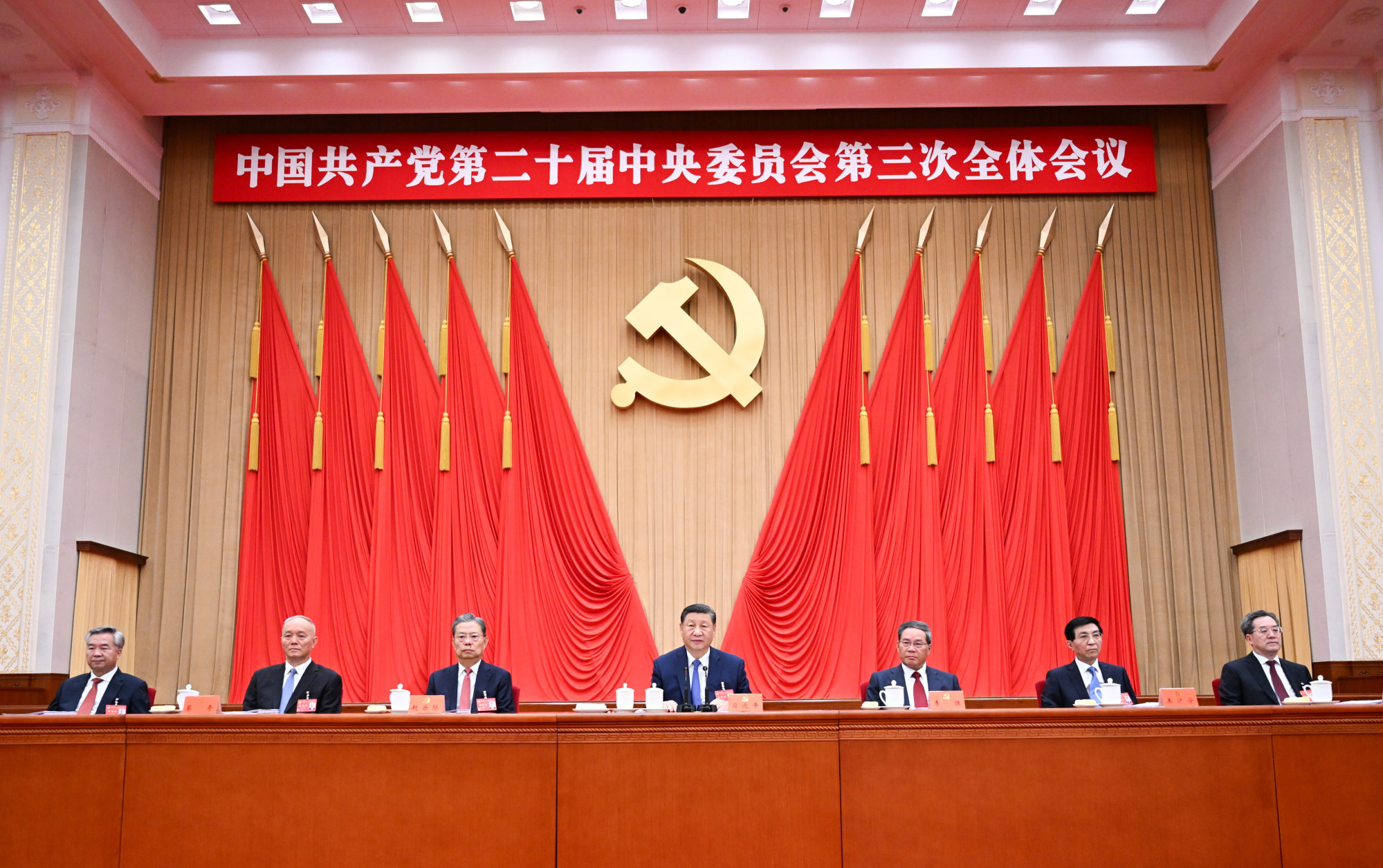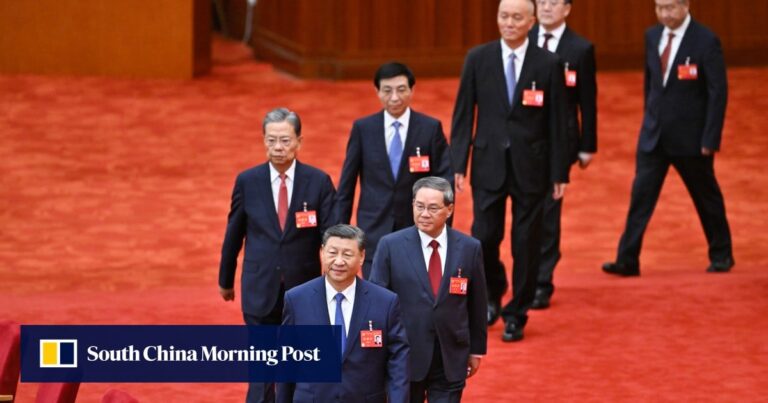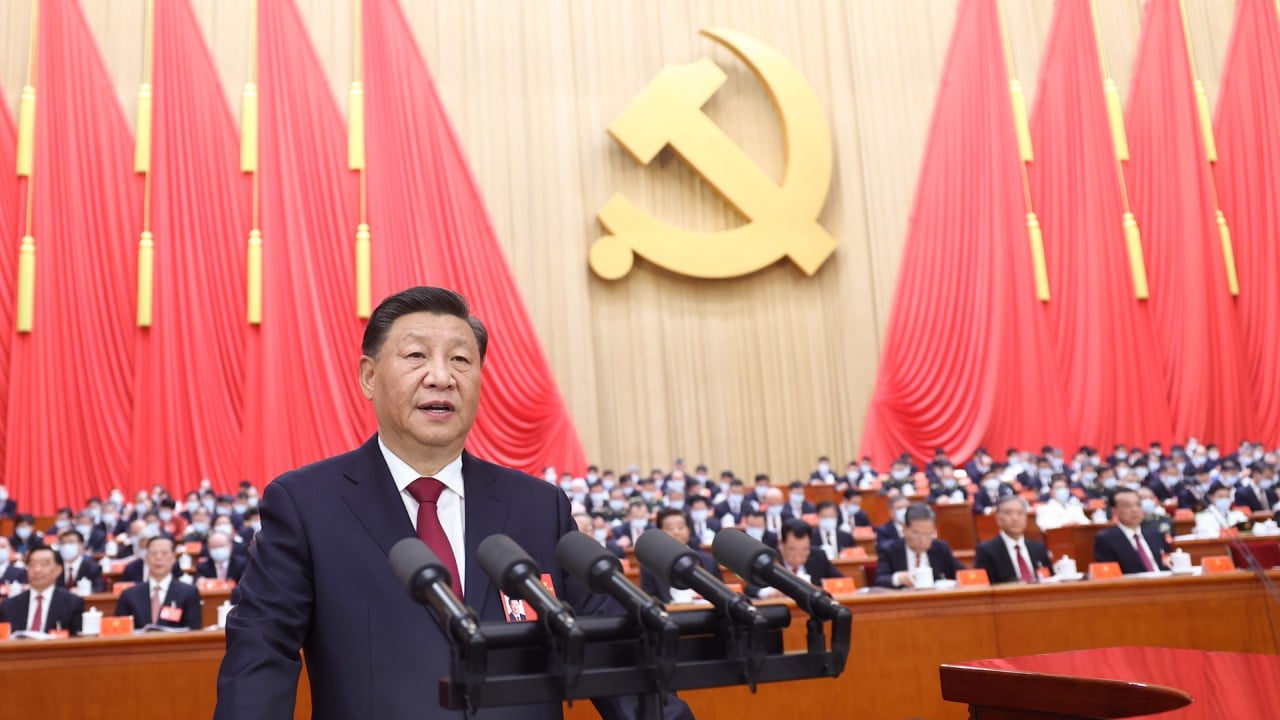This was announced at the end of a four-day session known as the Third Plenary, a key event where party leaders hammer out long-term strategy.
Some had hoped the Communist Party would announce sweeping reforms to jump-start the economy, but today’s announcement came as few surprises and reflected the leadership’s assessment that China needs to finish painful structural reforms of the economy, not just temporary fixes.
However, he acknowledged the current difficulties.
In an unusual departure from the tradition of focusing on long-term goals, the statement stressed that China “must make unwavering efforts to achieve this year’s growth target.”
The statement urged party members to “follow closely the economic policy decisions of the party leadership, take proactive measures to stimulate domestic consumption, and build new momentum to promote imports and exports.”
Lian Ping, secretary-general of the China Chief Economists Forum, said the reference to this year’s growth target was intentionally included in the statement as a call to action.
“I don’t think this portion will be included in the full statement, which will be released at a later date. Management wants to use this opportunity to address the disappointing performance in the second quarter.” [of this year],” He said.
Beijing-based consultancy Trivium China agreed that the statement’s surprising mention of the short-term outlook was “worrisome.”
“The leadership is clearly worried, which means we may see more aggressive policy intervention coming out of the Politburo meeting later this month.”
References aside, the bulk of the statement focused on the long term.
The committee vowed that China will continue to deepen reforms in all areas, including the economy, rural land, taxation, environmental protection, national security, anti-corruption and cultural development.
The word “reform” appeared 53 times in the statement. Unlike its Western usage, where it means liberalization, in China today it means improved governance and greater efficiency.
Liang said he was pleased that the statement addressed long-pending issues such as tax reform.
“And it is crucial to give a clear deadline for completing all these reforms by 2029. This is refreshing compared to the last Third Plenary,” he said.
“In the past, some reform measures have been mentioned and then quietly shelved when they could not be achieved. This time, they seem determined to see this through.”
More aggressive policy interventions are likely to be announced at the Politburo meeting later this month.
Efforts to speed up China’s science and technology development are at the heart of the reforms, with the sector seen as crucial to the country’s economic transformation.
The statement also called on the country to deepen supply-side reform, better integrate the digital and real economies, upgrade modern infrastructure, and build resilience in industrial supply chains.
The company cites human capital and talent enhancement as the foundation for achieving these goals.
“We must thoroughly and faithfully implement our strategy of reinvigorating the nation through science and education and strengthening the talent pool. Education and innovation must go hand in hand.”
On the economic front, it promised to “place greater emphasis on the role of the market,” but curiously omitted the commonly used phrase that markets are the defining force in the economy. Instead, the statement emphasized the need to maintain market order and correct market failures, reflecting Beijing’s concerns about risks to the financial system.
The need for risk management arose as China faced “complex and rapidly changing domestic and international challenges.”
“Appropriate measures must be taken to prevent and resolve risks in key areas such as the real estate sector and local debt. Financial institutions must be ensured to strictly adhere to safety guidelines,” the statement said.
“The government must strengthen monitoring and prevention of natural disasters, especially floods. It must build a social security network to effectively maintain social stability.”
He also said China needed to “strengthen the guidance of public opinion and prevent and eliminate ideological risks” – a euphemism for media censorship.

Ultimately, the party believes that managing risk and maintaining stability are key to improving governance overall.
The ministry said the party must ensure absolute leadership over the military and implement necessary reforms to help the PLA achieve its 100th anniversary goal, which is widely understood to mean reaching parity with the United States.
Xie Maosong, a senior researcher at the China Institute of Innovation and Development Strategy under the Chinese Academy of Sciences, called the statement “firm but patient.”
“President Xi has said many times that the easy parts of reform are over, and now we are entering uncharted territory. The party must tread carefully, especially as external risks grow. We also engage with the vested interests of many groups,” he said.
Larry Hu, chief China economist at Macquarie Capital, said the statement contained no surprises for financial markets.
“‘China modernization’ is not a specific goal, but rather a projection to better address the economic, social, environmental and geopolitical challenges China will face in the coming years,” Hu said in a research note.
“The party’s unique ideology is extremely important to the party, but it cannot be traded on the market.”


